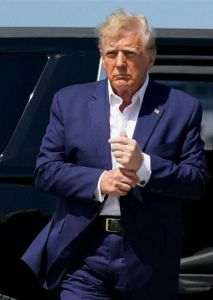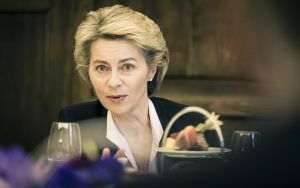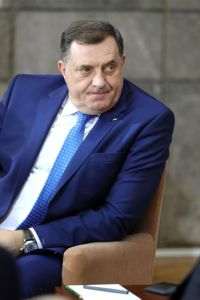• Vladimir Putin wants a common energy complex with Europe
Russia's 20-year energy strategy, which concerns the 2010 - 2030 period and was approved in November 2009, stipulates that the export of energy resources will remain the country's engine for growth, but its impact on the economy will decrease.
According to the document, the growth rates of the energy exports will gradually slow down, and their volume will stabilize by the end of that period. The trend is in line with the country's long-term economic policies, which are focused on the diversification of its economic structure and on reducing the country's dependency on energy exports.
Europe and the countries in the Community of Independent States (CIS) will remain the main buyers for Russia's fuel, the strategy states. According to it, Russia will implement measures to reduce the transit risks, including through the development and the continued improvement of the large scale export infrastructure in order to ensure the viable supply of these markets with Russian energy.
At the same time, Europe will account for less of Russia's total energy exports, as Russia will diversify its exports by selling to countries in the East (China, Japan, Korea, other countries in the Asian-Pacific region). Moreover, by the end of the third stage of the implementation of the Strategy, the weight of the Eastern energy markets in Russia's exports of liquid hydrocarbons (oil and oil products) should increase from its current level of 6%, to 22-25%.
• A common energy complex with Europe
Vladimir Putin, who was elected on Sunday as Russia's president, says: "We need to take into account a more extensive cooperation in the energy sector, including the creation of a common energy complex with Europe. The Nord Stream pipeline, which goes under the Baltic Sea, and the South Stream gas pipeline, under the Black Sea, are important steps in this direction. These projects have the support of several governments and involve the most important European energy companies".
"Once the pipelines start working at maximum capacity, Europe will have a reliable and flexible natural gas delivery system, which will not depend on the political whims of any country. This will strengthen the continent's energy security, not just on the surface, but at the core".
On the other hand, Putin said that the Third Energy Package, supported by the European Commission, which aims to restrict the operations of the Russian integrated companies, will not lead to the true consolidation of the relationships between Russia and the EU. The current Russian PM says: "Considering the increasing instability of the energy providers which could serve as an alternative to Russia, the package worsens the systemic risks of the European energy sector and drives away the potential investors into new infrastructure projects. Many European politicians criticized the package, when talking to me. We should show courage to eliminate this obstacle towards mutually beneficial cooperation".
• Strategic objective: The large scale integration into the world energy market
The aforementioned document also stipulates that the strategic goal of Russia's foreign energy policy is to use the country's potential with maximum efficiency for large scale integration with the world energy market, the consolidation of those market positions and generating the highest possible profit for the country's economy.
The most important vectors of the energy policy of the country are the preservation of stable relations with its traditional energy buyers and the building of relationships with new markets.
The strategy states that the main problems concerning Russia's energy resources comprise:
- dwindling demand and dropping prices of energy resources due to the world economic crisis;
- the insufficient diversification of the markets for Russia' energy resources and of the structure of its commodity exports;
- the politicization of the energy relations between Russia and the rest of the world;
- the low presence of the country's energy companies on the foreign markets.
The strategy also notes that in order to reach the objective of the country's foreign energy policy, the following must be achieved:
- the acknowledgment of Russia's national interests in the development of the system for the operation of the world energy markets, which aim at their predictable and stable development;
- the diversification of the export markets and of the structure of the commodities exports;
- ensuring stability on the energy markets, including guaranteed demand and certain prices for the major energy resources which are exported;
- the consolidation of the foreign positions of Russia's major energy companies;
- ensuring efficient international cooperation in the implementation of risky and complex projects in Russia;
- the active participation in the international negotiation processes which concern energy matters, finding a balance between the interests of importers, exporters and the countries for the transit of the energy resources, in the international treaties and the international organizations;
- the development of the cooperation in the energy sector with the countries in the Community of Independent States, the Eurasia Economic Union, North-East Asia, the Shanghai Cooperation Organization and the European Union, as well as other countries and international organizations;
- the coordination of its activity on the international oil and gas markets with the members of the Organization of Petroleum Exporting Countries and of the Forum of Natural Gas Exporters;
- assisting in the development of the United Russia-Europe-Asia energy zone;
- assistance in attracting foreign investments.
Over the last few years, Russia has supplied 12% of the world's oil. Over 4/5 of the Russian oil is exported to Europe, and Russia holds a share of about 30% of the European markets. Russia's oil products are also predominantly exported to European countries.
Russia is the world leader in terms of the oil reserves it owns (23% of the world reserves) and in terms of the annual output of natural gas. Russia provides 25% of the total volume of natural gas traded across the world, dominating both the European market and that of the CIS. Russian gas covers about 30% of the Europe's consumption.
Vladimir Putin: "We need greater, indiscriminate access to the foreign markets. The restrictive commercial and political measures are taken against Russian entrepreneurs, and the technical barriers place them at a disadvantage compared to their competitors".
•
Vladimir Putin: "We are trying to attract foreign capital into Russia's economy. We are opening up the most attractive areas of our economy to foreign investors, we grant access to < the tastiest morsels >, from our fuel to our energy complex. But our investors are not welcome abroad, as they are often times cast aside".
•
Vladimir Putin: "I think that an authentic partnership between Russia and the European Union is impossible as long as there are barriers which prevent the accomplishment of economic contacts, since we are speaking first of all about the requirements concerning the granting of visas. The elimination of the visas would provide a strong impulse towards real EU-Russia integration, and would help with the expansion of the cultural and business relationships, especially between the SMEs and major companies".
•
Russia's nuclear-electric industry represents 5% of the global market and 15% of the market for nuclear reactors.
•
Vladimir Putin: "Russia is a part of the Great World, regardless of whether we are talking about the economy, the dissemination of information or the development of culture. We do not want and we can not isolate ourselves. We hope that our openness will lead to economic and cultural development in Russia, and thus, the mutual trust will increase".
•
Vladimir Putin: "Over the past few years, cooperation with countries in Asia, Latin America and Africa has garnered increased attention from our diplomacy and our business community. These regions do not yet have sincere goodwill towards Russia. One of the key tasks for the coming period, is, in my opinion, the cultivation of the commercial and economic cooperation relations, as well as common projects in the following areas: energy, infrastructure, investments, science - technology, banks and tourism".

















































